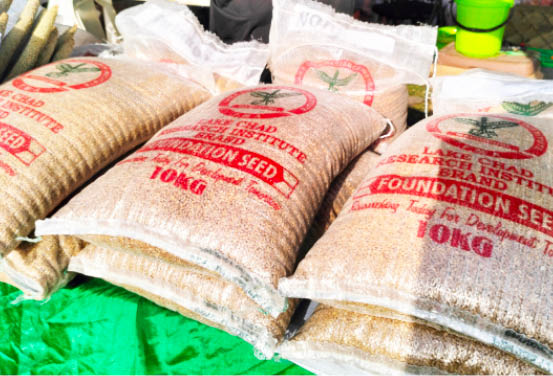Why Nigerian seed companies must profit from AFSTA 2024 congress
Next year, over 120 seed companies from Europe, the Americas, Asia and Africa will meet at the African Seed Trade Association (AFSTA) Congress in Mombasa, Kenya, to look at the emerging critical issues affecting the seed sector in Africa. The congress is a platform that brings well-established seed companies with track record of experience in […]

Nigerian seed
Next year, over 120 seed companies from Europe, the Americas, Asia and Africa will meet at the African Seed Trade Association (AFSTA) Congress in Mombasa, Kenya, to look at the emerging critical issues affecting the seed sector in Africa.
The congress is a platform that brings well-established seed companies with track record of experience in seed system to network for business, share knowledge and highlight investment opportunities across the continent.
Expectedly, the conference would create prospects for Nigeria, which is a key supplier of seeds in the West Africa sub region.
Nigeria, which is home to more than 420 seed enterprises that are members of the Seed Entrepreneurs Association of Nigeria (SEEDAN), will take advantage of the conference to learn from other countries’ most cutting-edge seed systems and bolster its position as the region’s leader.
Although Nigeria has a potential yearly seed requirement of 400,000 metric tons, each year, less than 200,000 metric tons of improved seeds are planted, meaning that over 300,000 metric tons of improved seeds are needed annually.
AFSTA, which was founded in 2000 as a non-profit membership organisation to represent the interests of private seed companies in Africa in the last few years, has been bringing together seed companies and national seed trade associations across the world for robust conversation on seed development and trade.
President of AFSTA, Dr Kulani Machaba, said, “The annual congress provides great opportunities for the seed industry stakeholders to network and trade, and also to provide information on the latest policy developments that have the potential to impact seed trade activities in Africa.
“We believe that when professionals meet together in such in person forums, they are able to share experiences as well as predict and influence where they want the seed sector to be in the coming years.
“In this congress, we will discuss, among other issues, the state of implementation of the harmonised seed trade policies and regulations by member States, as well as the Africa Free Trade agreement and its potential impact on the Seed Industry. We will do this because AFSTA remains relentless in advocating for improvement of the seed trade within Africa, a key mandate for the association.”
In order to weave together the regional seed laws between Common Market for Eastern and Southern Africa (COMESA) and West and Central African Council for Agricultural Research and Development (CORAF) associated countries, the organisation brings stakeholders together making cross-border seed transfers and certification easier by legislation.
AFSTA’s Communication Officer, Mr Aghan Daniel, a Kenyan, said the NSTAs were crucial in linking their members with markets and with their authorities. The South African National Seed Organisation (SANSOR) as a case in point, plays the role of a regulator as they are in charge of the seed inspection and quality, a role the government of South Africa has entrusted them with.
He said that as a result of AFSTA, 27 National Seed Trade Associations (NSTAs) had been established to oversee seed business and related activities in these nations adding that they also provide the pivotal critical role of voices to “seed issues” in these countries.
According to Mr Daniel, in preparation for the African Continental Free Trade Area (AfCFTA), the next conference will support the continent’s national seed trade associations in strengthening their positions.
Currently, the Nigerian government is seeking to increase domestic food production and seed remains critical to that dream as the Minister of State for Agriculture and Food Security, Senator Aliyu Sabi Abdullahi, said that the federal government planned to produce 31 million metric tonnes of grains by 2024.
Abdullahi stated that Nigeria’s seed requirement for 5 major crops of rice, maize, wheat, soybeans and sorghum in 2024 is 312,555.69MT of seeds which is expected to yield almost 31 million metric tonnes of grains.
To achieve this, the seed companies in the countries must network to look at every opportunity to strengthen their capacity to not only meet national demand, but also capture the regional markets.
